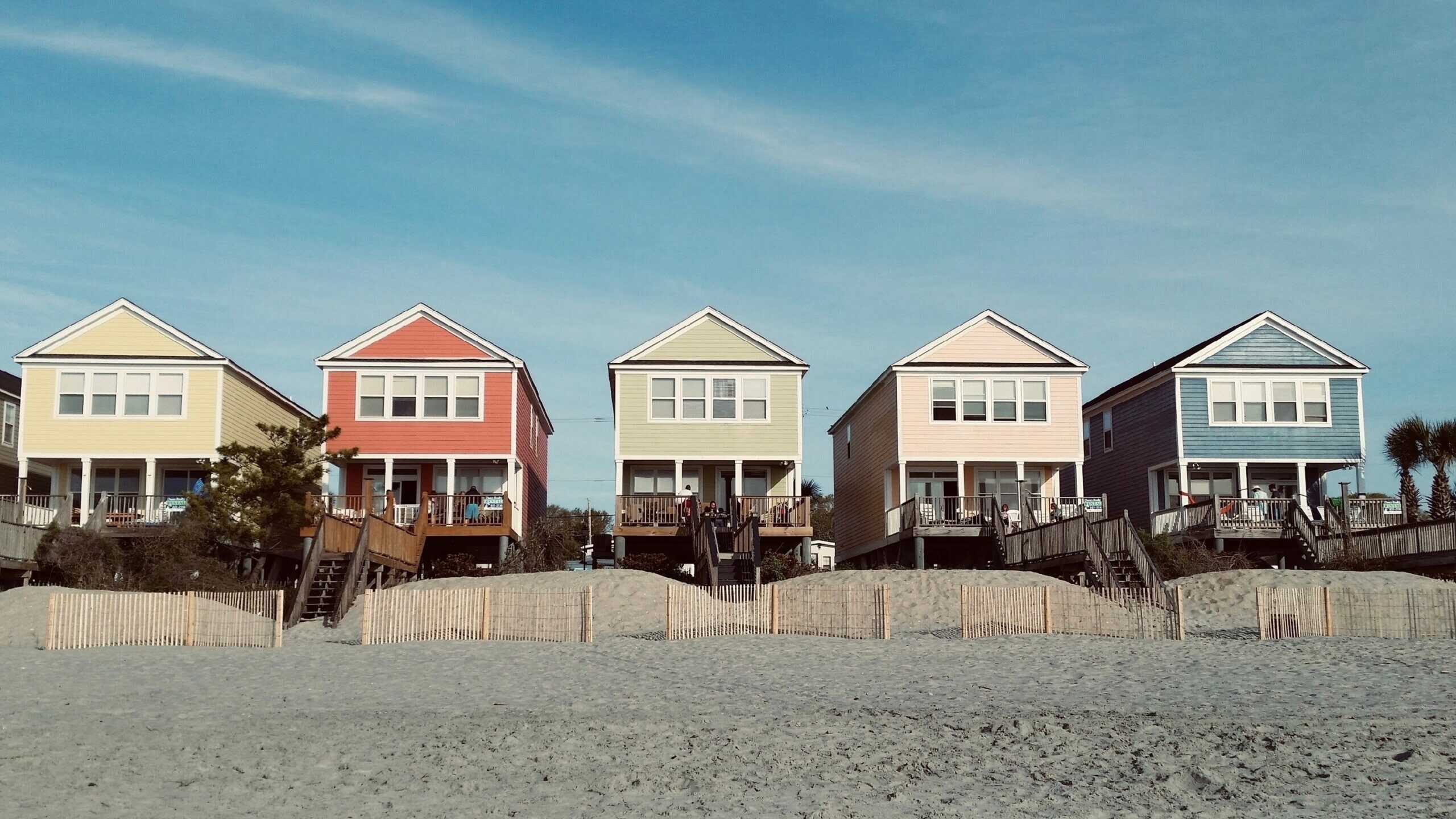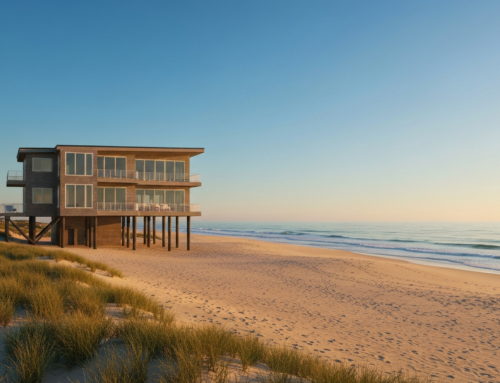Understanding the Basics of Homeowners Insurance in Myrtle Beach
Homeowners insurance is a crucial safeguard for your property and belongings. In Myrtle Beach, where the coastal environment presents unique challenges, understanding the fundamentals of Myrtle Beach homeowners insurance options is paramount. A standard homeowners insurance policy typically covers the following:
- Dwelling coverage: This protects the physical structure of your home, including the walls, roof, and foundation, from covered perils such as fire, wind, and hail.
- Personal property coverage: This covers your belongings inside the home, such as furniture, electronics, and clothing, against covered perils.
- Liability coverage: This protects you financially if someone is injured on your property and you are found legally responsible. It can cover medical bills and legal fees.
- Loss of use coverage: If your home becomes uninhabitable due to a covered peril, this coverage helps pay for additional living expenses, such as hotel stays and meals, while your home is being repaired.
It’s important to review your policy carefully to understand what is covered and what is excluded. Common exclusions may include damage from floods, earthquakes, and certain types of pests. In Myrtle Beach, flood insurance is particularly important and usually requires a separate policy, as standard homeowners insurance typically does not cover flood damage. You can learn more about assessing your flood risk by referring to resources like FEMA’s flood maps.
Understanding these basics is the first step in securing adequate protection for your home in Myrtle Beach. Factors like the age of your home, its construction type, and its location can all influence your insurance needs and premiums.
Exploring Myrtle Beach Homeowners Insurance Options: A Comprehensive Overview
When exploring Myrtle Beach homeowners insurance options, you’ll find various policy types designed to meet different needs and budgets. Here’s a breakdown of some common options:
- HO-3 (Special Form): This is the most common type of homeowners insurance policy. It provides all-risk coverage for your dwelling, meaning it covers all perils except those specifically excluded in the policy. For personal property, it typically provides named-peril coverage, meaning it covers only the perils listed in the policy.
- HO-5 (Comprehensive Form): This policy offers broader coverage than the HO-3, providing all-risk coverage for both your dwelling and personal property. It’s generally more expensive but offers greater protection.
- HO-8 (Modified Coverage Form): This policy is designed for older homes and provides basic coverage at a more affordable price. It often covers only named perils and may not cover the full replacement cost of your home.
- HO-4 (Renters Insurance): While not technically homeowners insurance, renters insurance is essential for tenants. It covers personal property, liability, and additional living expenses if your rental unit becomes uninhabitable due to a covered peril.
- Condo Insurance (HO-6): This covers the interior of your condo unit and your personal property. The condo association’s master policy typically covers the building’s structure and common areas.
In addition to these standard policy types, you may also consider adding endorsements or riders to your policy to increase coverage for specific items or perils. For example, you might add an endorsement to cover valuable jewelry or artwork, or to increase your liability coverage. Understanding these options will help you choose the policy that best fits your unique circumstances.
Furthermore, it’s wise to consider supplemental flood insurance policies given Myrtle Beach’s location. Standard homeowner’s insurance policies typically exclude flood damage. Learn more about flood insurance and its importance in coastal regions. Also, remember that maintaining your home can significantly reduce the likelihood of needing to file a claim. Read more about vital homeowner maintenance tips on our site: 6 vital homeowner maintenance tips.
Factors Influencing Your Homeowners Insurance Premiums
Several factors can affect the cost of your Myrtle Beach homeowners insurance options. Understanding these factors can help you make informed decisions and potentially lower your premiums.
- Location: Homes in areas prone to natural disasters, such as hurricanes or flooding, typically have higher premiums. Your proximity to the coast in Myrtle Beach will certainly be a factor.
- Home Value: The higher the value of your home, the more it will cost to insure. This is because the insurance company would have to pay more to rebuild or repair your home in the event of a covered loss.
- Coverage Amounts: The amount of coverage you choose for your dwelling, personal property, and liability can all impact your premiums. Higher coverage amounts will typically result in higher premiums.
- Deductible: Your deductible is the amount you pay out of pocket before your insurance company pays for a covered loss. Choosing a higher deductible can lower your premiums, but it also means you’ll have to pay more if you file a claim.
- Age and Condition of Your Home: Older homes may have higher premiums due to increased risk of damage. The condition of your home, including the roof, plumbing, and electrical systems, can also affect your premiums.
- Claims History: If you have a history of filing claims, your premiums may be higher. Insurance companies view homeowners with a history of claims as higher risk.
- Credit Score: In many states, insurance companies use credit scores to assess risk. A lower credit score may result in higher premiums.
By understanding these factors, you can take steps to potentially lower your homeowners insurance premiums. For example, you can improve your credit score, make necessary repairs to your home, and choose a higher deductible. Additionally, consider the impact of coastal living on your insurance rates, as discussed in our article on navigating coastal Carolina home insurance.
Coastal Considerations: Specific Coverage Needs for Myrtle Beach Homes
Living in Myrtle Beach offers a unique lifestyle, but it also presents specific challenges that affect your Myrtle Beach homeowners insurance options. Coastal homes are particularly vulnerable to hurricanes, floods, and wind damage, requiring specialized coverage considerations.
- Hurricane Coverage: Standard homeowners insurance policies may cover wind damage from hurricanes, but they often have separate hurricane deductibles, which can be a percentage of your dwelling coverage. It’s important to understand your hurricane deductible and how it applies.
- Flood Insurance: As mentioned earlier, flood damage is typically not covered by standard homeowners insurance. If you live in a flood zone, you’ll need to purchase a separate flood insurance policy.
- Windstorm Coverage: Some policies may exclude or limit coverage for wind damage. If this is the case, you may need to purchase a separate windstorm insurance policy.
- Elevation Certificates: If your home is elevated, you may be able to obtain an elevation certificate, which can help you get a more accurate flood insurance rate.
- Building Codes: Ensure your home is built to current building codes, which are designed to withstand coastal conditions. Homes built to code may qualify for lower insurance rates.
- Mitigation Measures: Taking steps to protect your home from coastal hazards, such as installing hurricane shutters or reinforcing your roof, can also help lower your premiums.
In addition to these coverage considerations, it’s important to regularly inspect your home for signs of damage and perform necessary maintenance to prevent costly repairs. Staying informed about potential risks and taking proactive measures can help you protect your home and your wallet.
Remember to prepare adequately for hurricane season to mitigate potential damage. Our comprehensive guide provides essential information on how to prepare for a hurricane.
Comparing Quotes and Choosing the Right Policy for You
Finding the right Myrtle Beach homeowners insurance options requires careful comparison of quotes and policy features. Here are some tips to help you make an informed decision:
- Get Multiple Quotes: Contact several insurance companies or work with an independent insurance agent to get quotes from multiple providers.
- Compare Coverage: Don’t just focus on price. Compare the coverage offered by each policy, including the dwelling coverage, personal property coverage, liability coverage, and any endorsements or riders.
- Review Deductibles: Consider the deductible options and how they will affect your premiums. Choose a deductible you can afford to pay out of pocket if you file a claim.
- Check the Insurance Company’s Financial Strength: Make sure the insurance company is financially stable and has a good reputation for paying claims. You can check the company’s financial strength rating with agencies like A.M. Best or Standard & Poor’s.
- Read Reviews: Read online reviews to see what other customers have to say about their experiences with the insurance company.
- Ask Questions: Don’t hesitate to ask questions about anything you don’t understand. A good insurance agent will be happy to explain the policy in detail and answer your questions.
Choosing the right homeowners insurance policy is a personal decision. Consider your individual needs, budget, and risk tolerance when making your choice. It is also crucial to understand the factors driving up homeowner’s insurance premiums. Learn more about the reasons behind rising premiums and potential mitigation strategies here.
Filing a Claim: What to Expect and How to Navigate the Process
Even with the best homeowners insurance policy, you may eventually need to file a claim. Understanding the claims process can help you navigate it smoothly and efficiently. Here’s what to expect:
- Report the Damage Promptly: Contact your insurance company as soon as possible after discovering damage to your home.
- Document the Damage: Take photos or videos of the damage before making any repairs. This will help support your claim.
- Protect Your Property: Take reasonable steps to prevent further damage to your property. For example, if you have a leaky roof, cover it with a tarp.
- Complete a Claim Form: Your insurance company will provide you with a claim form to complete. Fill it out accurately and provide all the requested information.
- Cooperate with the Insurance Adjuster: An insurance adjuster will be assigned to your claim. Cooperate with the adjuster and provide them with any information they need.
- Get Estimates for Repairs: Get estimates from reputable contractors for the cost of repairs. Provide these estimates to the insurance adjuster.
- Review the Settlement Offer: Once the adjuster has reviewed your claim, they will provide you with a settlement offer. Review the offer carefully and make sure it covers all the necessary repairs.
- Appeal if Necessary: If you disagree with the settlement offer, you have the right to appeal. Follow the instructions provided by your insurance company to file an appeal.
Filing a homeowners insurance claim can be stressful, but by understanding the process and working closely with your insurance company, you can ensure a fair and timely resolution. Remember to keep detailed records of all communication and expenses related to the claim. For additional support, consider consulting with a qualified public adjuster or attorney. However, understand the potential drawbacks; we outline some reasons why you may not need one: reasons you don’t need a public insurance adjuster.
Navigating the world of insurance can be complex. The Insurance Information Institute is a great resource for understanding different types of coverage and how they work.
Have questions? Contact us here.






